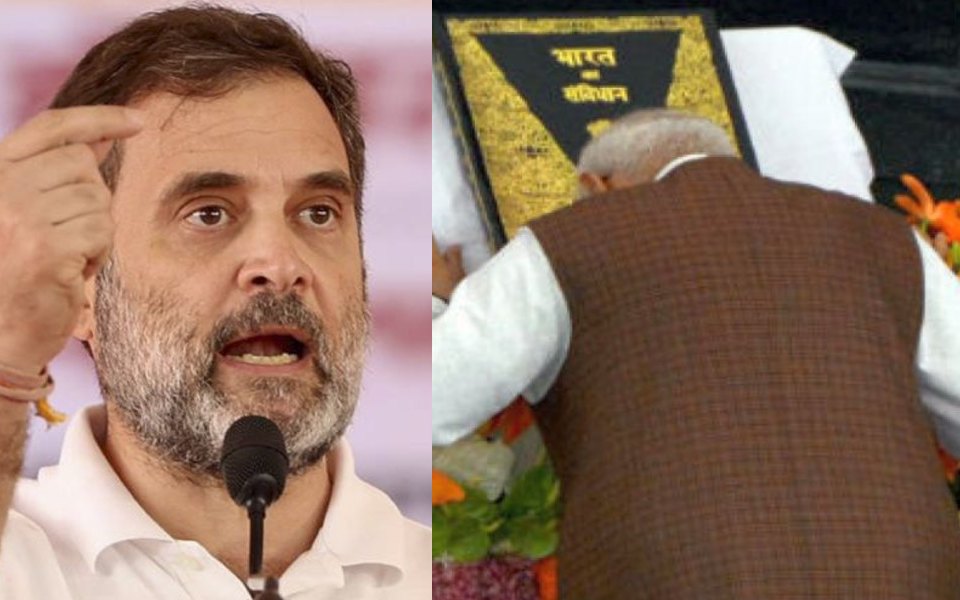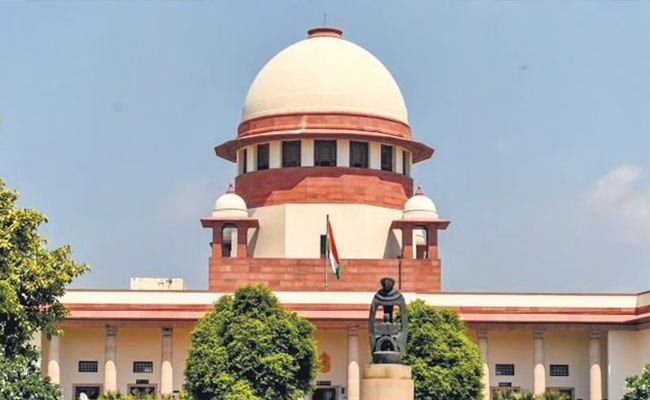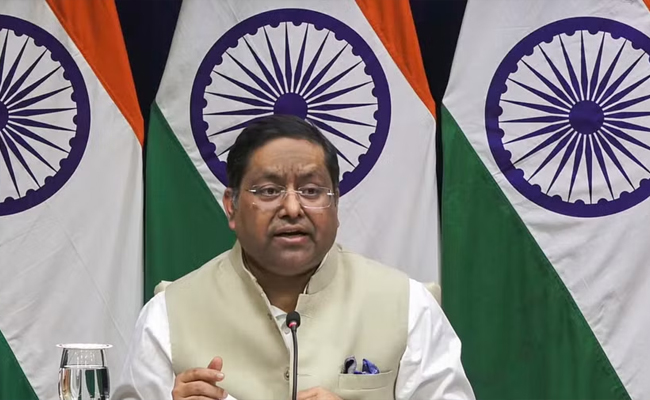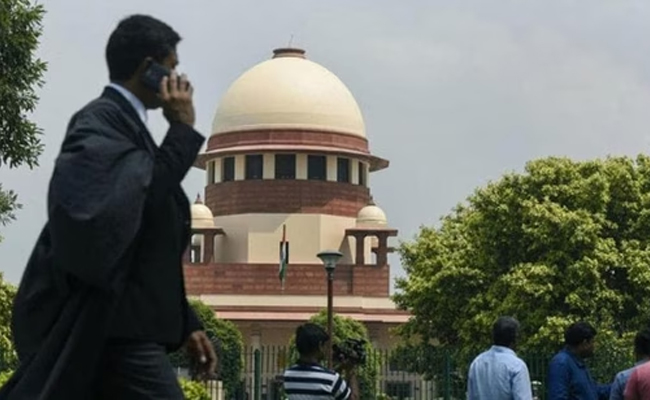New Delhi, Sep 7: Taking a swipe at Prime Minister Narendra Modi over the police encounter of a man involved in robbery in Uttar Pradesh's Sultanpur, Leader of Opposition in the Lok Sabha on Saturday said that touching the Constitution to the forehead in front of the cameras is just a pretense "when your governments are openly violating it".
Gandhi demanded that all suspicious encounters in Uttar Pradesh should be investigated impartially.
Mangesh Yadav, a wanted criminal involved in a robbery worth Rs 1.5 crore at a jewellery store in Sultanpur, was killed in an encounter with the police early Thursday, officials said. Yadav was carrying a reward of Rs 1 lakh on his arrest.
According to police, Yadav was killed in the encounter with the Special Task Force of the Uttar Pradesh Police in Mishirpur Puraini village.
In a post in Hindi on X, Gandhi alleged that in BJP-ruled states, the very people who are responsible for implementing the law and Constitution are violating them.
The encounter of Mangesh Yadav in Sultanpur has once again proved that the BJP does not believe in the rule of law, he said.
"The tears of Mangesh's family are asking the whole country a question - who will live and who will not, will the court or the police decide this?" the former Congress chief said.
"A professional force like the STF is being run like a 'criminal gang' under the BJP government and the silence of the Central government on this is their clear consent to this 'Thoko Niti'," Gandhi said.
Dozens of encounters of the UP STF are under question, he said.
"Has any action been taken against any of those officers till date? Who is protecting them and why?" he asked.
"Touching the Constitution to the forehead in front of the cameras is just a pretense when your governments are openly violating it," Gandhi said.
All the suspicious encounters in Uttar Pradesh should be investigated impartially and justice should be done, he said, adding that "blood stains on the uniform must be cleaned".
Days after the Lok Sabha election results were announced, a meeting of the newly elected MPs of the Bharatiya Janata Party-led NDA alliance was held at Parliament to decide the leader of the coalition. Upon his arrival, Prime Minister Modi paid respect to the Constitution of India by touching the book to his forehead.
Let the Truth be known. If you read VB and like VB, please be a VB Supporter and Help us deliver the Truth to one and all.
New Delhi (PTI): Broken relationships, while emotionally distressing, do not automatically amount to abetment of suicide in the absence of intention leading to the criminal offence, the Supreme Court on Friday said.
The observations came from a bench of Justices Pankaj Mithal and Ujjal Bhuyan in a judgement, which overturned the conviction of one Kamaruddin Dastagir Sanadi by the Karnataka High Court for the offences of cheating and abetment of suicide under the IPC.
"This is a case of a broken relationship, not criminal conduct," the judgment said.
Sanadi was initially charged under Sections 417 (cheating), 306 (abetment of suicide), and 376 (rape) of the IPC.
While the trial court acquitted him of all the charges, the Karnataka High Court, on the state's appeal, convicted him of cheating and abetment of suicide, sentencing him to five years imprisonment and imposing Rs 25,000 in fine.
According to the FIR registered at the mother's instance, her 21-year-old daughter was in love with the accused for the past eight years and died by suicide in August, 2007, after he refused to keep his promise to marry.
Writing a 17-page judgement, Justice Mithal analysed the two dying declarations of the woman and noted that neither was there any allegation of a physical relationship between the couple nor there was any intentional act leading to the suicide.
The judgement therefore underlined broken relationships were emotionally distressing, but did not automatically amount to criminal offences.
"Even in cases where the victim dies by suicide, which may be as a result of cruelty meted out to her, the courts have always held that discord and differences in domestic life are quite common in society and that the commission of such an offence largely depends upon the mental state of the victim," said the apex court.
The court further said, "Surely, until and unless some guilty intention on the part of the accused is established, it is ordinarily not possible to convict him for an offence under Section 306 IPC.”
The judgement said there was no evidence to suggest that the man instigated or provoked the woman to die by suicide and underscored a mere refusal to marry, even after a long relationship, did not constitute abetment.





